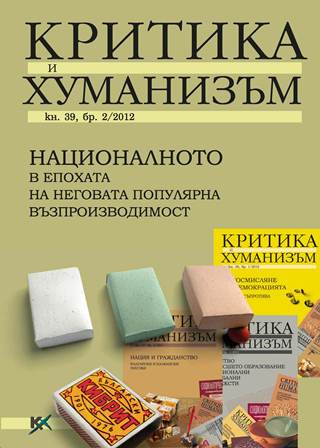За "циганите", "ромите" и "Умберто Еко"
About 'gypsies', 'Roma' and 'Umberto Eco'
Author(s): Milena YakimovaSubject(s): Social Sciences
Published by: Фондация за хуманитарни и социални изследвания - София
Keywords: political correctness; Roma; Gypsy; normative vocabularies; social justice
Summary/Abstract: The more public a word is, the less questionable its usages are: this is what those who believe in public sphere as consensus hope. But it seems rather the other way round: the more public a word is, the more and more various social actors have access to it and hence the more heterogeneous its usages are. The paper views this as the main reason why the vocabularies of political correctness inevitably and necessarily fail. This is demonstrated through an interpretation of a locally specifi c attempt introducing a politically correct vocabulary trying to replace the word ‘Gypsy’ and its derivatives with the word ‘Roma” and its respective derivatives. The demonstration rests on an analysis of internet media forums and media publications from 2008-2009 and shows how the newly introduced words turn into a tool of shaping a new segment of reality and how with the transition of the vocabulary from expert through media to everyday discourse it interweaves with a normative resignifi cation of some key notions in the normative vocabulary of democracy – ‘equality’, ‘justice’, ‘power’, to mention a few. The argument of the turn to politically correct ethnonims ran that ‘Gypsy’ is used as offence, while ‘Roma” was not pejorative because had no usages. But since a word can only have a meaning in its interactive usages, the social-rhetorical effect was to resignify ‘Roma’ as a ‘Gypsy’ but one with rights; and since rights were thus interweaved with culture understood as ethnicity, these very rights were reinterpreted in media forums to be privileges, which in turn was taken to be unjust inequality on the part of non-‘Roma’. Thus in the long run (which actually happened to be rather short) the turn toward a vocabulary of political correctness resulted in the discursive reconstructing of a part of the Bulgarian citizens as second hand citizens.
Journal: Критика и хуманизъм
- Issue Year: 2012
- Issue No: 39
- Page Range: 279-299
- Page Count: 21
- Language: Bulgarian
- Content File-PDF

